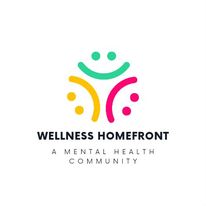
Introduction
In the digital age, social media mental health has become a profound force shaping our conversations, attitudes, and perceptions.
Among the myriad topics discussed, mental health has emerged as a significant area of discourse, breaking past stigmas and fostering a much-needed dialogue.
The evolution of this conversation over the years has been monumental, transforming from a hushed topic into a widely embraced discussion.
The Evolution of Mental Health Discussions
Looking back a decade ago, mental health was a topic often shrouded in silence on social media.
Posts were few and far between, with many individuals hesitant to share their experiences for fear of judgment or misunderstanding.
However, as the conversation around mental health began to gain momentum in broader society, so too did it flourish on social media platforms.
In recent years, we’ve seen celebrities like Selena Gomez, Demi Lovato, and Prince Harry open up about their mental health struggles, sparking important conversations and encouraging others to do the same.
These candid disclosures have helped to normalize mental health discussions, with hashtags like #MentalHealthMatters and #EndTheStigma trending worldwide.
The Rise of Mental Health Advocacy
With the increasing openness around mental health, we’ve seen a surge in advocacy efforts on social media.
Influencers, celebrities, and organizations have leveraged their platforms to raise awareness about mental health issues and support those who may be struggling.
Campaigns like Bell’s Let’s Talk, a wide-reaching multi-platform initiative, have made significant strides in breaking down barriers around mental health discussions.
By encouraging people to share their stories using the #BellLetsTalk hashtag, the campaign has not only fostered a supportive community but also raised millions for mental health initiatives.
The Role of Social Media Platforms
While users have driven much of the change in mental health discourse, social media platforms themselves have also played a role.
Platforms like Instagram and Facebook have implemented features to promote positive mental health conversations and protect users from harmful content.
For instance, Instagram now provides resources to users who search for mental health-related hashtags, directing them to support services.
Similarly, Facebook has introduced suicide prevention tools, allowing users to report concerning posts to a team of experts who can provide help.
The Impact of COVID-19 on Mental Health Discussions
The COVID-19 pandemic has underscored the importance of mental health, with many individuals facing heightened stress, anxiety, and depression.
This has catalyzed an even more significant shift in the conversation on social media.
During this period, we’ve seen a surge in personal mental health stories, advice on coping with pandemic-related stress, and an increased emphasis on self-care.
Hashtags like #CovidMentalHealth and #PandemicAnxiety have trended, allowing users to connect, share their experiences, and find support during these challenging times.
Conclusion and Looking Ahead
The conversation around mental health on social media has come a long way, transforming from a taboo subject into an open and supportive dialogue.
As we look ahead, it’s clear that social media will continue to play a pivotal role in shaping this conversation.
While we’ve made significant strides, the work is far from over.
It’s up to all of us—users, influencers, organizations, and social media platforms—to continue fostering this important dialogue, breaking down stigmas, and ensuring that anyone struggling with their mental health can find the support they need in the digital sphere.
Together, we can continue to harness the power of social media for positive change, creating a world where mental health is discussed just as freely and openly as physical health.
Additional Resources
For more insightful resources and support on mental health, be sure to visit Wellness Homefront.
They provide a wealth of information and resources about mental health, self-care, and wellness practices.
From insightful articles to professional guidance, Wellness Homefront can help you navigate your mental health journey in the digital age.
And be sure to check out Wellness Homefront’s social media pages
World Health Organization (WHO) on Mental Health: https://www.who.int/health-topics/mental-health
Use this for: General statistics, global guidelines, or to demonstrate the worldwide acknowledgment of the importance of mental health discussions.
Mind, the Mental Health Charity: https://www.mind.org.uk/
Use this for: Resources, support tools, and information related to mental health issues and their significance in the modern era.
Bell Let’s Talk Official Page: https://letstalk.bell.ca/en/
Use this for: Readers who want a deeper dive into one of the advocacy campaigns you mentioned. It offers specific details on their efforts and impacts.

